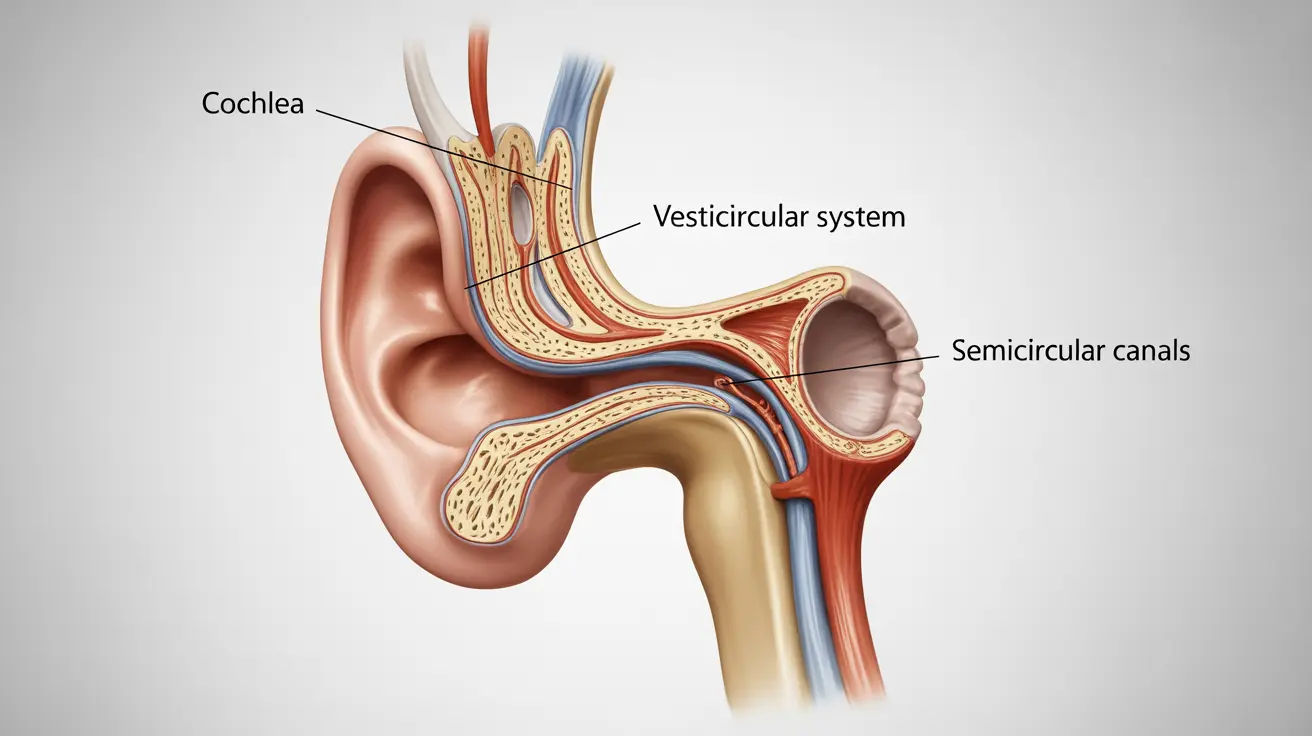When you're experiencing a sensation that makes you feel unsteady or off-balance, it's crucial to understand whether you're dealing with vertigo or dizziness. While these terms are often used interchangeably, they represent distinct conditions that require different approaches to diagnosis and treatment. This comprehensive guide will help you understand the key differences between vertigo and dizziness, their causes, and how to manage them effectively.
Distinguishing Between Vertigo and Dizziness
Vertigo and dizziness are fundamentally different sensations. Dizziness is a general term that describes feeling lightheaded, unsteady, or weak. In contrast, vertigo specifically refers to the false sensation that you or your surroundings are spinning or moving, even when everything is stationary.
Understanding these distinct characteristics can help you better communicate your symptoms to healthcare providers and receive appropriate treatment more quickly.
Common Causes and Risk Factors
Causes of Dizziness
Dizziness can result from various conditions and circumstances:
- Low blood pressure
- Dehydration
- Anxiety or panic attacks
- Medication side effects
- Anemia
- Blood sugar fluctuations
Causes of Vertigo
Vertigo typically stems from issues affecting the inner ear or brain:
- Benign Paroxysmal Positional Vertigo (BPPV)
- Meniere's disease
- Vestibular neuritis
- Labyrinthitis
- Migraine-associated vertigo
Warning Signs and Symptoms
While both conditions can be disruptive, certain symptoms warrant immediate medical attention:
Red Flags for Dizziness
- Severe headache
- Chest pain
- Difficulty breathing
- Sudden confusion
- Loss of consciousness
Red Flags for Vertigo
- Sudden severe vertigo
- Double vision
- Difficulty speaking
- Weakness in limbs
- Persistent vomiting
Treatment Approaches
Managing Dizziness
Treatment for dizziness often focuses on addressing the underlying cause:
- Hydration and proper nutrition
- Medication adjustments
- Blood pressure management
- Stress reduction techniques
- Regular exercise programs
Managing Vertigo
Vertigo treatment may include:
- Canalith repositioning procedures
- Vestibular rehabilitation therapy
- Medication for symptoms
- Balance training exercises
- Dietary modifications
Prevention and Lifestyle Modifications
Several lifestyle changes can help reduce the frequency and severity of both conditions:
- Maintaining good hydration
- Regular exercise focusing on balance
- Adequate sleep
- Stress management
- Avoiding trigger foods and situations
- Regular medical check-ups
Frequently Asked Questions
What is the difference between dizziness and vertigo, and how can I tell which one I have? Dizziness typically feels like lightheadedness or unsteadiness, while vertigo creates a distinct spinning sensation. If you feel like you or your surroundings are rotating, you're likely experiencing vertigo. If you feel faint or unsteady without spinning, it's probably dizziness.
What are the common causes of dizziness versus vertigo, and are there different risk factors for each? Dizziness often results from systemic issues like low blood pressure, dehydration, or anxiety. Vertigo typically stems from inner ear problems or neurological conditions. Risk factors for dizziness include medications, age, and cardiovascular conditions, while vertigo risks include ear infections, head injuries, and migraine history.
What symptoms should I watch for that might mean my dizziness or vertigo is serious and needs medical attention? Seek immediate medical care if you experience severe headache, chest pain, difficulty speaking, sudden confusion, persistent vomiting, or loss of consciousness alongside your symptoms. Additionally, any sudden onset of severe vertigo or dizziness with neurological symptoms requires emergency evaluation.
How are dizziness and vertigo treated or managed, and what options are available for relief at home? Treatment depends on the underlying cause. Home remedies include staying hydrated, avoiding sudden movements, and performing prescribed exercises. Medical treatments may include medications, physical therapy, or specific procedures like the Epley maneuver for vertigo.
Can lifestyle changes help prevent recurrent episodes of dizziness or vertigo, and what strategies are most effective? Yes, lifestyle modifications can help prevent episodes. The most effective strategies include maintaining good hydration, getting regular exercise, practicing stress management, ensuring adequate sleep, and avoiding known triggers. Regular medical check-ups can also help identify and address potential causes early.




